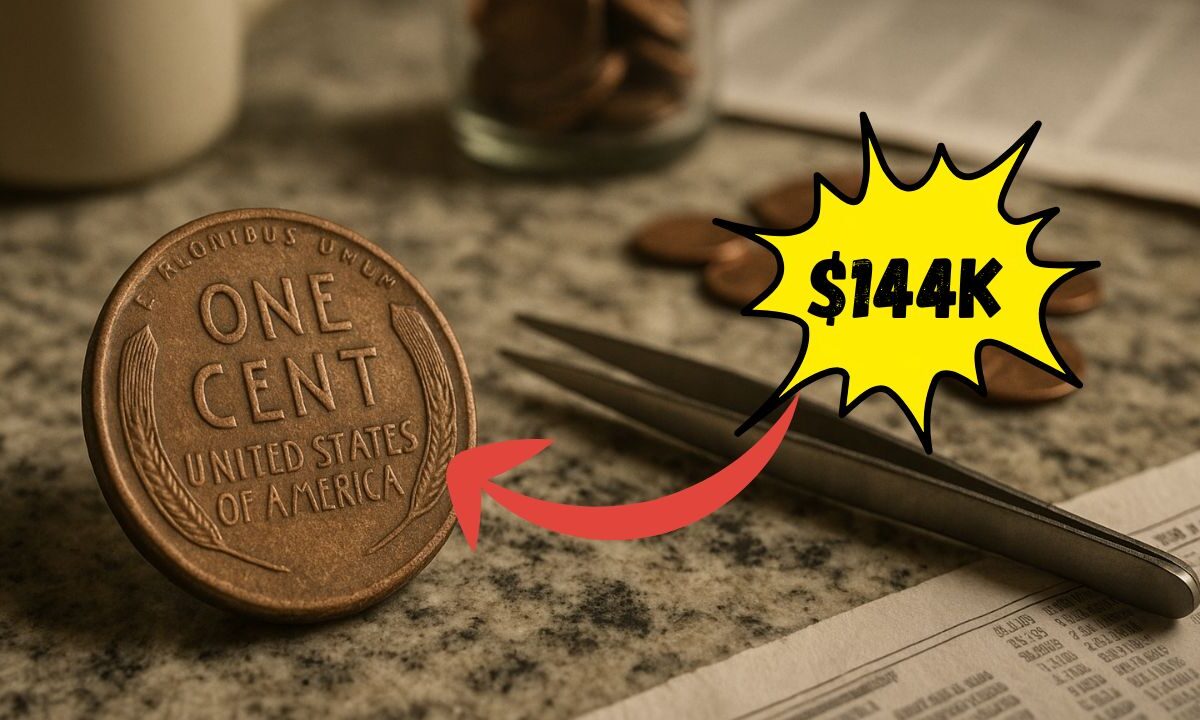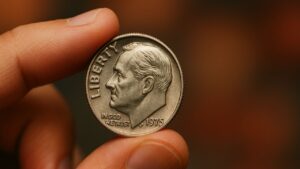The Lincoln Wheat Penny, minted from 1909 to 1958, is a cherished piece of American numismatic history. While most of these coins are valued at face value—one cent—certain rare varieties have fetched astonishing prices at auctions.
A notable example is the 1943 copper Lincoln Wheat Penny, which has been known to sell for over $144,000.
But the question arises: are these valuable pennies still in circulation today? Let’s delve into the details.
Understanding the Lincoln Wheat Penny
Design and Minting History
- Obverse (Front): Features a portrait of President Abraham Lincoln, designed by Victor David Brenner.
- Reverse (Back): Depicts two stalks of wheat, symbolizing agriculture and prosperity.
- Minting Period: 1909 to 1958.
- Composition: Initially 95% copper and 5% tin and zinc; later, during World War II, zinc-coated steel was used due to copper shortages.
Significance in Numismatics
The Lincoln Wheat Penny holds a special place among collectors due to its historical context and the variations in its design and composition over the years.
The 1943 Copper Lincoln Wheat Penny: A Rare Gem
The 1943 Copper Penny
- Minting Error: In 1943, due to wartime copper shortages, the U.S. Mint produced pennies using zinc-coated steel. However, a small number of copper planchets were mistakenly used, resulting in copper pennies.
- Rarity: It’s estimated that only about 20 of these copper pennies exist today.
- Value: These rare pennies have been sold at auctions for prices exceeding $144,000.
Why Is It Valuable?
The rarity of the 1943 copper penny, combined with its historical significance, makes it highly sought after by collectors.
Are These Valuable Pennies Still in Circulation?
Current Status
Given their rarity, it’s highly unlikely that a 1943 copper penny would still be in general circulation. Most have been secured by collectors or institutions.
Possibility of Discovery
While rare, it’s not entirely impossible for one to be found in circulation, especially in older coin collections or estate sales.
Other Notable Lincoln Wheat Penny Varieties
| Year | Mint Mark | Notable Features | Estimated Value |
|---|---|---|---|
| 1909-S VDB | San Francisco | First year with designer’s initials | $1,000+ |
| 1914-D | Denver | Low mintage | $1,500+ |
| 1922 No D | Denver | Missing mint mark | $1,800+ |
| 1931-S | San Francisco | Low mintage | $500+ |
These varieties are also highly valued among collectors due to their rarity and unique characteristics.
How to Identify Valuable Lincoln Wheat Pennies
Key Features to Examine
- Mint Marks: Located below the date; absence or unusual placement can indicate rarity.
- Die Errors: Look for doubled dies, repunched mint marks, or other anomalies.
- Condition: Coins in mint or near-mint condition are more valuable.
Resources for Authentication
- Professional Grading Services: Organizations like PCGS and NGC can authenticate and grade coins.
- Coin Collecting Guides: Books and online resources provide detailed information on identifying valuable coins.
While most Lincoln Wheat Pennies are still in circulation and hold little value beyond their face value, certain rare varieties, like the 1943 copper penny, are highly valuable and sought after by collectors. If you come across a Lincoln Wheat Penny, it’s worth examining its features to determine its potential value.
FAQs
How can I tell if my Lincoln Wheat Penny is valuable?
Examine the mint mark, date, and condition of the coin. Rare varieties and coins in excellent condition are more valuable.
Are 1943 copper pennies still in circulation?
It’s highly unlikely. Most have been secured by collectors due to their rarity.
Where can I sell a valuable Lincoln Wheat Penny?
You can sell valuable coins through auction houses, coin dealers, or online marketplaces specializing in numismatics.




